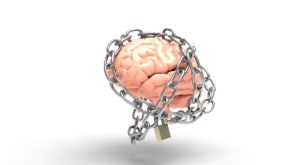 Dear Mr. Minton,
Dear Mr. Minton,
I hope you received this email well. There’s this question that has been on my mind for some time. As the title suggests, it’s about things we (probably) can’t control. I don’t know how to articulate my questions, that’s why I’ve been putting off sending this email. I hope it won’t get too confusing. I have 2 questions basically. Several experiences has led me to question these.
1. Is there really free will? (And since I suspect you’ll answer yes, how can we really be sure? This question is from the point of view of someone looking for confirmation rather than one who doesn’t believe in free will.)
2. Are there limits to free will in which people sometimes do things that they really do not mean? Perhaps things like reflex? How do you think these things affect accountability?
I have a lot of troubles with question #2. I’ve met many people who often share that they’ve done things they never meant. “I couldn’t help it. “I couldn’t control myself.” “Before I knew it, I was doing something horrible.”
Personally, I have also found myself in similar situations. I grew up in a strict household where mistakes are greatly looked down upon. Do something the family doesn’t approve and you’ll have to be punished. Perhaps because of that, I’ve become good at lying in order to save my skin. It was only until yesterday that I realized that lying felt like second nature to me. It’s an undesirable trait but I couldn’t deny it. I also noticed that when I get cornered, I often end up spewing lies to save myself from a worse outcome. And these lies, I noticed, just come out. Sometimes I only realized I said a lie after I already said it. In these moments, it truly felt like I didn’t have control over myself. It felt like things just somehow happened.
But I know emotions can lie. Did I really have no free will in those moments? Or did it only feel that way? Did I in fact have control over myself the whole time? If indeed there was no free will in these moments, how does this affect what we believe as Christians? Frankly, I wouldn’t like it if I didn’t have free will in those moments. The implications of this are far too wide and complicated. I know these are odd questions to ask. And I don’t know if this kind of question has a place in your blog, but I hope you read this. Thank you and God bless you.
- Sunny
 Your concerns reflect a thoughtful mind, Sunny. First of all, let me say that I’m so sorry you grew up in such an unforgiving household. When a child is not allowed to make mistakes it can be – as your testimony attests – very damaging to a child which can affect them on into adulthood. It can create a paralyzing fear of failure. To all parents with small children or even teenagers reading this (actually I would say ESPECIALLY if you have teenagers) please understand that there’s no need to make your child cry over spilled milk. Lighten up, okay? Not everything your child does deserves a 2 hour scolding or a hissy fit.
Your concerns reflect a thoughtful mind, Sunny. First of all, let me say that I’m so sorry you grew up in such an unforgiving household. When a child is not allowed to make mistakes it can be – as your testimony attests – very damaging to a child which can affect them on into adulthood. It can create a paralyzing fear of failure. To all parents with small children or even teenagers reading this (actually I would say ESPECIALLY if you have teenagers) please understand that there’s no need to make your child cry over spilled milk. Lighten up, okay? Not everything your child does deserves a 2 hour scolding or a hissy fit.
As Ephesians 6:4 says “Fathers, do not provoke your children to anger, but bring them up in the discipline and instruction of the Lord.” (ESV)
Now, onto the topic of free will.
Do We Have Free Will and How Do We Know?
The answer is yes, we do have free will, and there are many ways we can know how. There are both good philosophical arguments as well as scriptural evidences. I wrote a blog post titled “5 Arguments For The Existence Of Free Will” that I recommend you check out when you have the chance. Here, in this article, I will just rehash a small amount of that ground.
First, my friend Dr. Tim Stratton of FreeThinking Ministries did his Master’s Thesis on “The FreeThinking Argument” which is also covered in his doctoral dissertation “Human Freedom, Divine Knowledge, and Mere Molinism: A Biblical, Historical, Theological, and Philosophical Analysis”, which is surprisingly readable for a dissertation. Very layperson friendly.
The FreeThinking Argument comes in various forms. The most popular is his FreeThinking Argument Against Naturalism which simultaneously establishes the existence of libertarian free will and shows that humans have souls (we’re not just bodies).
It goes like this:
1- If naturalism is true, the immaterial human soul does not exist.
2- If the soul does not exist, libertarian free will does not exist.
3- If libertarian free will does not exist, rationality and knowledge do not exist.
4- Rationality and knowledge exist.
5- Therefore, libertarian free will exists.
6- Therefore, the soul exists.
7- Therefore, naturalism is false.
Premise 1 seems obviously true to me. If Naturalism is true, then we’re just organic robots. If naturalistic atheism is true, all there is is matter, energy, space, and time. There are no “souls” or “spirits”. Most atheists are naturalists and would therefore would agree with premise 1. Premise 1 is synonymous with “If naturalism is true, all that exists are natural kinds of things – matter, energy, space, time”. Premise 1 seems undeniable. All it asserts is naturalism’s most basic premise; that supernatural things don’t exist. And I would consider souls and spirits to be supernatural entities. Now, what about premise 2? Premise 2 also seems self-evident. If it is the case that we are not souls in bodies, then it follows that we’re just “molecules in motion” as Frank Turek likes to put it. If Naturalism/Atheism is true, we are nothing but automata. All of our movements, feelings, thoughts, and opinions are causally determined by electrochemical processes in our brains, molecules, and atoms bumping about, and other physical processes. “You” are a meat machine. As geneticist Francis Crick put it “Your joys and your sorrows, your memories and your ambitions, your sense of identity and free will, are in fact no more than the behaviour of a vast assembly of nerve cells and their associated molecules.”1
So if atheism is true, we don’t have souls, and if we don’t have souls, we don’t have free will. We’re just “molecules in motion”. What about premise 3? Is it true that “If libertarian free will does not exist, rationality and knowledge do not exist?” I think so! Tim Stratton, in his article “The Freethinking Argument In A Nutshell”, wrote “Premise (3) is equivalent with ‘if all things are causally determined, then that includes all thoughts and beliefs.’ If our thoughts and beliefs are forced upon us, and we could not have chosen better beliefs, then we are simply left assuming that our determined beliefs are good (let alone true). Therefore, we could never rationally affirm that our beliefs are the inference to the best explanation – we can only assume it. Here is the big problem for the atheistic naturalist: it logically follows that if naturalism is true, then atheists — or anyone else for that matter — cannot possess knowledge. Knowledge is defined as ‘justified true belief.’ One can happen to have true beliefs; however, if they do not possess warrant or justification for a specific belief, their belief does not qualify as a knowledge claim. If one cannot freely infer the best explanation, then one has no justification that their belief really is the best explanation. Without justification, knowledge goes down the drain. All we are left with is question-begging assumptions.”2
Dr. William Lane Craig put it this way; “There is a sort of dizzying, self-defeating character to determinism. For if one comes to believe that determinism is true, one has to believe that the reason he has come to believe it is simply that he was determined to do so. One has not in fact been able to weigh the arguments pro and con and freely make up one’s mind on that basis. The difference between the person who weighs the arguments for determinism and rejects them and the person who weighs them and accepts them is wholly that one was determined by causal factors outside himself to believe and the other not to believe. When you come to realize that your decision to believe in determinism was itself determined and that even your present realization of that fact right now is likewise determined, a sort of vertigo sets in, for everything that you think, even this very thought itself, is outside your control. Determinism could be true; but it is very hard to see how it could ever be rationally affirmed, since its affirmation undermines the rationality of its affirmation.”3
What about premise 4? Well, the skeptic of free will is welcome to deny this premise, but he does so at the cost of forfeiting the right to engage in the discussion any longer. If he asserts that we can NOT engage in the rational enterprise and thus, gain knowledge, (we’re irrational and know nothing), then why should anyone listen to him? After all, he’s irrational and doesn’t know anything! Who wants to listen to an irrational and ignorant person? But no one goes after this premise because a denial of it is obviously self refuting. If the determinist says “No, rationality and knowledge don’t exist”, then he is claiming to know something; namely that he doesn’t know anything. And if I asked him why he thought that, he would immediately start giving me some arguments, as though his reasoning faculties for assessing those arguments were reliable.
In my experience, critics really only go after premise 3. Most people don’t attack premises 1, 2, and 4. Those are just so obviously true that no one disagrees with them. Although in a couple of different conversations (such as the episodes of The Cerebral Faith Podcast episodes he was on where we discussed this argument, see here and here), Dr. Stratton has told me that there are those who would deny 2, but I’ve yet to encounter them. Perhaps this is one of those stark contrasts between academia and lay circles.
I’ve had some discussions with skeptics of the argument in the comment section of this blog and elsewhere, and none of them have given me a persuasive reason to think that premise 3 is wrong. Given the truth of the 4 premises, the conclusions follow; libertarian free will exists, the soul exists, and therefore naturalism is false.
The core of The FreeThinking Argument is just this;
1 – If humans don’t have libertarian free will, then rationality and knowledge do not exist.
2 – Rationality and knowledge do exist.
3 – Therefore, humans have libertarian free will.
I like the version against naturalism because I can refute the physicalists (which unfortunately include a lot of my fellow conditionalist/annihilationist brothers in Christ) and the determinists at the same time.
There are a lot of other arguments I cover in the aforementioned blog post, and Tim Stratton covers this issue pretty extensively in his book.
Are There Limits To Free Will?
You wrote \\”Are there limits to free will in which people sometimes do things that they really do not mean? Perhaps things like reflex? How do you think these things affect accountability?“\\ —
The answer is yes. There are limits. Tim Stratton correctly characterizes libertarian free will as “The ability to choose between a range of options each of which is compatible with one’s own nature”. He calls this Limited Libertarian Freedom. Kenneth Keathley calls this Soft Libertarian Freedom in his book “Salvation and Sovereignty: A Molinist Approach”.
This definition; “Being able to choose between a range of options each of which is compatible with your own nature” implies that you cannot choose to do some things; because they’re not consistent with your nature. For example, I would be utterly incapable of torturing little animals for enjoyment, or being a serial killer, a serial rapist, or being the next Hitler. My moral nature does not permit me to commit such heinous acts, and the nature of most people reading this probably wouldn’t permit them to. I am incapable of making the aforementioned choices.
Compatiblists (those who try to harmonize free will with determinism, but only at the cost of redefining what free will means) will use this as evidence that we don’t have the freedom to choose between options. We can only act according to our nature. I agree with that, but the compatiblist goes so far as to argue that my nature compels (determines) me to choose what I choose, and making an alternative choice in that circumstance was actually impossible.
I think this goes too far. Suppose I have a Saturday afternoon free to do whatever I want. I can watch anime all afternoon and evening, I can play video games, I can jam to my favorite Christian Rock bands, or I can watch meme videos on YouTube. All of these choices are consistent with my nature. And even among these choices there are other choices I can make. If I decide to watch anime, which one? Attack On Titan? Pokemon? My Hero Academia? Digimon? Bleach? Watching any of these is consistent with my nature. What if I choose to play video games, well, there’s a list of options there as well. I can play Super Mario 3D All Stars, Pokemon Sword, The Legend Of Zelda, Digimon Story: Cyber Sleuth, or something else. What about listening to Christian Rock bands? Well, which one? Skillet? Ledger? Seventh Day Slumber? Kutless? War Of Ages? Choosing any of these is compatible with my nature.
I have A LOT of options to choose from which are compatible with my nature. The “Your choice was determined by your nature” explanation just doesn’t make sense, because lots of things are consistent with my nature. Why did I choose one option, but not another?
The more tenable compatiblist option is not to say “You did X because your nature determined you to do X” but “You did X because X was your greatest desire”. However, there are problems with that too. First, The FreeThinking Argument (not to mention biblical evidence) establishes that we have libertarian free will, not compatiblist “free” will. Secondly, it would seem that if the compatiblist follows this logic to its extent, you would be forced to say that whenever one has two desires of equal strength, he would be paralyzed. Sort of like the donkey caught between two equally delicious fruits in Socrates’ thought experiment. But surely, I would be able to go in one direction or another, wouldn’t I?
Morally, there are good things and bad things consistent with my nature. And unfortunately, I sometimes choose the latter when I could have chosen the former. As Paul says in 1 Corinthians 10:13, “No temptation has overtaken you except that which is common to man, and God is faithful. He will not allow you to be tempted beyond what you are able. But with the temptation, He will provide a way of escape also, so that you will be able to endure it.” Whenever I’m tempted to sin, if I sin, I did not have to sin. I could have chosen to not sin. I could have chosen “The way of escape” God provided. This is what philosophers call PAP (the principle of alternative possibilities) and it’s in libertarian conceptions of free will.
Now, let’s get specific to your situation. Based on what you described, it sounds to me like you’ve turned yourself into a habitual liar through the course of time. It may indeed be in the cases you described that you could not have done otherwise. Now, I don’t think this excuses you. I think you’re still accountable. Here’s how: Although you may not be able to choose otherwise NOW, there was once a time in which you could. In which lying wasn’t something that was second nature. And since you chose to lie when you could have been truthful in the past, it’s your own fault that you are now a habitual liar and cannot do otherwise. Now, before you despair, I do think you can get to a place where you can eventually do otherwise eventually.
Here’s some analogies for how one can be morally accountable in some circumstances in which they cannot choose otherwise. A person may be cocaine addict who cannot choose to simply stop doing coke. He is compelled to do coke. He can’t choose otherwise. Now, does that mean that he cannot be held accountable? No. For although he cannot do anything but snort coke today, there was once a time in which he could (A) snort coke, OR (non-A) not snort coke. Because he made the wrong choice at some point in the past – when he had the ability to make the right choice – he is culpable for being a drug addict. And his family and/or the government can rightly be upset at him.
A person who jumps off of a building to commit suicide doesn’t have the ability to fly back up to the top if he changes his mind. He may regret jumping the moment before he hits the street, but he’s still culpable for killing himself because there was a time when he could (A) jump or (Not-A) not jump.
We make choices, and our choices make us. Although our range of options are limited by our character, here’s the thing; we can change our character! We can make a series of choices which, over the course of time, will change who we are, and thus, change the range of options we’re able to choose from. A drug addict may go to rehab and make a series of choices to where he gets to a point to where he CAN say no to cocaine. Likewise, if you try to make it habit to tell the truth, you may get to the point where you’re on the other end of the spectrum (i.e telling the truth comes naturally). This is what I call crossing a “Free Will Bridge”. We may not be able to choose a certain option given the current state of our character, but we can make a bridge out of a series of choices. Once we cross the bridge, we’ll be able to choose what was previously unchoosable.
As I was telling Sam in the comment section of the article “Worship Me or Burn: The Oversimplication Of An Atheist Meme” this is the essence of sanctification. The sin nature is a part of who we are. It’s either a character trait or a set of character traits. And God cannot simply extract this like a surgeon removing a tumor. Because it’s embedded in our very personalities, God has to change us. He’s got to change the sin nature away.
Now that we’ve dealt with the free will issue; the apologetic, philosophical issue. It’s time to move on to some pastoral advice. Although you didn’t express this in your e-mail, I want you to first don’t doubt your salvation if it takes you a long time to stop. Habitual sin is not necessarily a sign of an unsaved person. Check out my blog post “Does Repetitive Sin Mean We Aren’t Saved?”
Secondly, take some pro-active steps to overcome this sin in your life. You may need to seek counceling if it’s really bad, but before you spend any money, do this first.
GotQuestions.Org says “The Bible is a resource that we too often treat lightly. We give token service to it by carrying our Bibles to church or reading a daily devotional or a chapter a day, but we fail to memorize it, meditate on it, or apply it to our lives; we fail to confess the sins it reveals or praise God for the gifts it reveals to us. When it comes to the Bible, we are often either anorexic or bulimic. We either take in just enough to keep us alive spiritually by eating from the Word (but never ingesting enough to be healthy, thriving Christians), or we come to feed often but never meditate on it long enough to get spiritual nutrition from it.
It is important, if you have not made a habit of daily studying and memorizing God’s Word, that you begin to do so. Some find it helpful start a journal. Make it a habit not to leave the Word until you have written down something you have gained from it. Some record prayers to God, asking Him to help them change in the areas that He has spoken to them about. The Bible is the tool the Spirit uses in our lives (Ephesians 6:17), an essential and major part of the armor that God gives us to fight our spiritual battles (Ephesians 6:12-18).
……. [prayer] is a resource that Christians often give lip service to but make poor use of. We have prayer meetings, times of prayer, etc., but we do not use prayer in the same way as the early church (Acts 3:1; 4:31; 6:4; 13:1-3). Paul repeatedly mentions how he prayed for those he ministered to. God has given us wonderful promises concerning prayer (Matthew 7:7-11; Luke 18:1-8; John 6:23-27; 1 John 5:14-15), and Paul includes prayer in his passage on preparing for spiritual battle (Ephesians 6:18).
How important is prayer to overcoming sin in our lives? We have Christ’s words to Peter in the Garden of Gethsemane, just before Peter’s denial. As Jesus prays, Peter is sleeping. Jesus wakes him and says, “Watch and pray so that you will not fall into temptation. The spirit is willing, but the body is weak” (Matthew 26:41). We, like Peter, want to do what is right but are not finding the strength. We need to follow God’s admonition to keep seeking, keep knocking, keep asking—and He will give us the strength that we need (Matthew 7:7). Prayer is not a magic formula. Prayer is simply acknowledging our own limitations and God’s inexhaustible power and turning to Him for that strength to do what He wants us to do, not what we want to do (1 John 5:14-15).”4
With God’s help, you can eventually cross that “Free Will Bridge”. I hope this article was helpful to you. God bless you.
NOTES
1: Francis Crick, The Astonishing Hypothesis, 1994 cited in Mariano Artigas, The Mind of the Universe: Understanding Science and Religion, Templeton Foundation Press, 2001 p. 11.
2: Tim Stratton, “The FreeThinking Argument In A Nutshell”, November 30th 2015, http://freethinkingministries.com/the-freethinking-argument-in-a-nutshell/
3: William Lane Craig, “#157 Molinism VS. Calvinism” – April 19th 2010 —https://www.reasonablefaith.org/writings/question-answer/molinism-vs.-calvinism/
4: GotQuestions.org, “How Can I Overcome Sin In My Christian Life?” –> https://www.gotquestions.org/victory-over-sin.html






